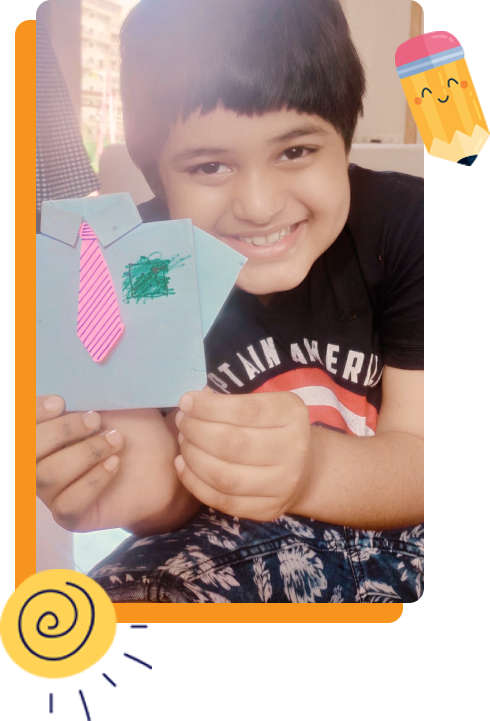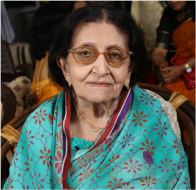About Us
Home » About Us
What is an early intervention centre?
Hence quality early childhood intervention centre provides specialized support and services for infants and young children that are at-risk or with disability and/or development delay.
Intervention brings the family a greater understanding of their child’s needs and how to break learning down into small steps for their child.
There are usually four components of early intervention centre. They are:
- Family-centered orientation
- Natural learning environment
- Collaborative team processes
- Service intergration
Eager to learn more

Our core team

Jena Sunderji
Co-Founder

Malek Sunderji
Co-Founder

Zarina Sunderji
Co-Founder

Masarrat Tavawalla
Co-Founder + Director

Nikita Gandhi
Creative Team Leader
See our student’s success

All under one roof
- Special Educator
- Clinical Psychologist / Counsellors
- Speech / Language Pathologist
- Occupational Therapist
- Sensory Integration Therapist
- Play Therapist
- Dance Movement Therapist
- Art Therapist
With the help of the assessment they create the short and long term goals and establish the personalized IEP for the child
They assist in:
- Instruct students in the development of skills and knowledge that enables them to participate independently to the highest degree possible, based on assessment needs
- Works with members of the IEP team (i.e. parents, classroom teachers, speech providers, occupational & physical therapists, orientation & mobility and vision specialists) to provide a functional and meaningful program
- Create a program geared to the assessed needs, goal & objectives, functional levels and motivational levels of the student
- Prepare and utilize equipment and materials for the development of skill as it is related to Adapted Physical Education (i.e. beeper balls. sponge balls, batting tees, etc.)
- Conduct assessment which focuses on both long and short-term needs of the student
Assess
Working closely with parents and teachers, school psychologists use a wide variety of techniques, to evaluate: academic skills, learning aptitudes, social skills, self-help skills, emotional development, behavioral functioning, eligibility for special education programs, school and classroom programs, career and vocational goals.
Intervene:
*work directly with students or families
*help solve conflicts and problems related to learning and adjustment
*provide counseling, social skills training, behavior management, and other interventions
*help families deal with difficult crises such as separation or loss
Educate
*Provide educational programs on classroom management strategies, parenting skills, working with students with disabilities or gifted and talented students, teaching and learning strategies.
Speech therapist or speech-language pathologists are trained personnel who work with children having speech-related disorders. They also provide screening, consultation, assessment, diagnosis, treatment, management and counseling services for children with special needs.
They help a child with:
- Articulation skill is the physical ability to move the tongue, lips, jaw and palate to produce individual speech sounds
- Expressive language skills: While speech involves the physical motor disability to talk, language is a symbolic system to convey a message.
- Receptive language/Listening skills: Receptive language, refers to a child's ability to listen and understand language. A therapist can help teach the child new vocabulary and how to use that knowledge to follow direction, answer a question and participate in single conversations with others.
They help in to evaluate and improve the function of the body with particular attention to physical mobility, balance, posture, fatigue and pain.
It involves educating the child about the physical problem caused by their disability, designing and individualized wise program to address the problems and enhancing mobility and energy conversation through the use of a variety of mobility aids and adaptive equipment.
They provide sensory activities to help a child appropriately respond to light, sound, touch, smell, and other input.
They assist in:
- Remedial intervention involving the use of sensory and motor activities and equipment (e.g., swinging, massage)
- Accommodations and adaptations wearing earplugs or headphones to diminish noise, or using a textured sponge in the shower
- Sensory diet programs involving a daily menu plan which includes individualized, supportive sensory strategies (e.g., quiet space, aromatherapy, weighted blanket), physical activities, and tangible items (e.g., stress balls or other items for distraction)
- Environmental modifications to decrease sensory stimulation such white noise machines, art work, and other types of decor/furnishings
- Education for involved individuals, including family members, caregivers, and administrators, about the influence of sensory functions on performance and ways to minimize their negative impact on function
A play therapist is trained to observe the child's behavior during the play sessions, explore issues with the child, make a diagnosis and construct activities that can help the child heal. Children naturally communicate their emotions and challenges through play, and the therapist is able to pick up on them.
They help in:
- assessing each child and their individual needs
- determine a course of therapeutic treatment
- provide therapeutic interventions in individual and group therapy sessions, and sometimes involving parents/carers or siblings, normally on a weekly basis, to help children better cope with the issues they're facing
- build up a relationship of trust with children and their parents/carers
- create a safe and stable environment in which children can express themselves through play
- review therapeutic interventions on a regular basis
- work as part of a multidisciplinary team with other healthcare professionals, such as social workers, psychologists, occupational therapists and medical practitioners
attend meetings, maintain client records and produce reports on activities and progress.
- Guiding children to explore knowledge of both body and mind as it relates to their illness and wellness
- Helping children identify individually creative methods of regulating mood and behaviors
- Assisting children in achieving suitable leisure skills to help cope with life‟s difficulties
- Preparing children physically to develop their cognitive processes and sustain healthy lifestyles.
With the help of paint and colours, a therapist can guide children to communicate their feelings and thoughts. Art therapy helps a child with special needs work through issues that trouble their development, like physical, emotional, mental and behavioural conditions.
They help in:
- Seeking to improve communication skills for children who experience significant introverted behavior
- Seeking to unlock the ability to express emotions for a child who struggles in this area
- Helps students to understand their emotions as they profess them during art therapy
- Studying whether students have a particular aptitude for art
- Helps students with significant trauma to express their feelings in a healthy way


